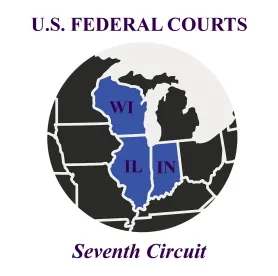The Seventh Circuit Court of Appeals recently decertified a class of female correctional facility employees who alleged gender discrimination based, in part, on a theory of “ambient” harassment. The opinion underscores how the individualized nature of harassment claims can act as a barrier to class certification.
Nature of Claims
Female employees of the Cook County Jail Complex sued their employer for gender discrimination based on the County’s alleged failure to prevent and remedy male prison inmates’ sexual harassment of the plaintiffs. Plaintiffs claimed that Cook County permitted this harassment to go unchecked and failed to maintain effective procedures to prevent and remedy the harassment.
Class Certification in the District Court
Plaintiffs moved to certify a class of all non-supervisory female employees at the jail complex under Rule 23(b)(3). In support, they claimed that between 2015 and 2018 there were at least 1,745 complaints of male inmates sexually harassing female employees. Such prevalence, they argued, supported the notion that all female employees working at the Jail Complex were victims of “ambient” harassment. According to the plaintiffs’ expert, ambient, or indirect harassment is “the experience of working in an environment…in which crude and offensive sexual behavior is common and employees see that it is normative, whether specifically directed at them or not.” Although the named plaintiffs alleged that they experienced both direct and ambient harassment, they argued that all proposed class members were victims of ambient harassment.
The district court certified the proposed class of just over 2,000 employees, reasoning that there was a common question as to “whether the ambient harassment suffered by the female employees was sufficiently severe or pervasive to support a Title VII hostile work environment claim.” In certifying the class, the court rejected the defendant’s argument that the named plaintiffs’ direct harassment claims were not typical of class members’ ambient harassment claims. In the district court’s view, “direct harassment differs from ambient harassment only in degree and not in kind.”
Modified Class Definition and Rule 23(f) appeal to Seventh Circuit
Cook County appealed the district court’s class certification ruling under Rule 23(f). During the pendency of the appeal, plaintiffs requested that the district court modify the class definition to exclude approximately 180 employees who had no direct contact with male inmates. The district court accepted the modified definition and explained that the more narrow class definition would lessen any differences among class members. But the district court did not perform a formal reassessment of whether the modified class definition satisfied Rule 23’s commonality and typicality requirements.
The Seventh Circuit held that this modification, without reassessment, was in error because ambient harassment was “central to the [district] court’s commonality finding.” In modifying the class, however, the district court removed almost 200 class members because their claims relied solely on ambient harassment.
Ultimately, the Seventh Circuit found common questions lacking for the proposed class. With respect to alleged ambient harassment, the appellate court explained that, even if such harassment “pervade[d] the jail complex,” this did not create a common question for the class because the plaintiffs did not show that the harassment manifested itself in the same way across all parts of the jail. The Seventh Circuit noted that the jail complex spanned thirty-six buildings across eight city blocks and that the harassment reports were heavily concentrated in specific maximum security divisions. On such facts, ambient harassment was an insufficient basis for commonality because it “overlook[ed] meaningful distinctions among class members’ experiences.” The Seventh Circuit reached the same conclusion for plaintiffs’ claims of direct harassment, noting that “hostile work environment claims are fact intensive,” and focus on “individualized questions of law and fact.” Given the varied experiences among class members, the Seventh Circuit held that the class lacked commonality.
Takeaways
Howard is a textbook example of how the fact-intensive nature of hostile work environment claims makes class certification unsuitable. The opinion is a useful road map for employers defending class actions based on harassment and a reminder that toxic or hostile workplace cultures can, in theory, lead to class-wide litigation under a theory of ambient harassment.





 />i
/>i

